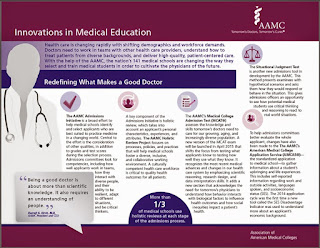New College of Human Medicine Prerequisite Models Offer A Variety of Pathway Options

It doesn't take a philosophy major to understand that change is constant. Some changes are serious and life-altering; others, not so much. In the world of science, new discoveries and knowledge add foundational context from which the future of medicine must learn to incorporate and adapt. Higher education communities have raised concerns about whether or not premedical curricula have kept up with these changes; what seemed to work yesterday may not be what works tomorrow . Many medical experts agree that an undergraduate education should not be geared towards only getting students into medical school; instead, these years should be dedicated to creativity within an intellectually stimulating liberal arts education. Congruent with this mindset is the concept that prerequisites (or for that matter any scripted course of undergraduate study) should not be so overwhelming that the applicant seems pressured to emphasize (major in) science in lieu of other academically rigorous
